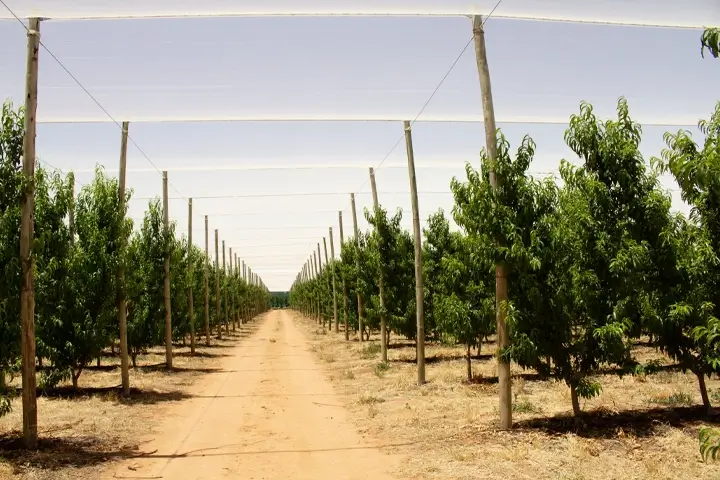
As a global agronomist specializing in sustainable farming and rural development, I have observed firsthand the profound impacts of invasive pests on agricultural economies worldwide. South Africa’s deciduous fruit industry—a cornerstone of the nation’s agricultural exports—faces a growing threat from these pests. In response, the establishment of the Centre of Excellence marks a transformative step toward enhancing pest surveillance and ensuring long-term sector resilience.
This article delves into the science, technology, and best practices behind this initiative, analyzing how it bolsters sustainability, enhances competitiveness, and serves as a model for proactive agricultural innovation.
The Growing Threat of Invasive Pests
Invasive pests, such as the Mediterranean fruit fly, Polyphagous Shot Hole Borer (PSHB), and spotted wing Drosophila (SWD), have escalated risks for the South African deciduous fruit industry. These pests not only damage crops but also trigger quarantine restrictions, jeopardizing market access. Anton Rabe, executive director of Hortgro, aptly described the urgency of combating these threats:
“Catching an invasive pest as soon as it arrives in the country may allow us to eradicate it before it has gained a foothold.”
The Centre of Excellence: Vision and Implementation
Launched under the leadership of Hortgro, the Centre of Excellence represents an integrated approach to pest management, leveraging data-driven surveillance, innovative technology, and collaborative frameworks. Here’s how it is structured to deliver impact:
1. Strengthening Pest Surveillance and Early Detection
The Centre builds upon the capabilities of FruitFly Africa (FFA), which has been a cornerstone of pest monitoring since 2001. With over 6,000 monitoring traps and sterile fly releases in millions, the FFA has significantly reduced populations of the Mediterranean fruit fly.
The new initiative expands surveillance to emerging threats like PSHB and SWD, ensuring real-time data collection and faster response times. This preemptive strategy is critical for safeguarding crop health and maintaining international phytosanitary standards.
2. Deploying Advanced Pest Management Technologies
The Centre employs state-of-the-art tools, including:
- Sterile Insect Technique (SIT): Mass-releasing sterile insects to curb pest reproduction.
- Remote Monitoring Systems: Providing growers with real-time updates on pest activities.
- Biological Control: Introducing natural predators to manage invasive species without harming the ecosystem.
By integrating these methods into existing practices, the Centre ensures a comprehensive, environmentally friendly pest management system.
3. Supporting Multi-Sector Collaboration
While the initial focus is on deciduous fruits, the Centre’s capabilities are designed to benefit related industries, including berries, wine, and table grapes. By fostering industry-wide collaboration, it creates a resilient agricultural framework that benefits the broader economy.
Economic and Sustainability Impacts
Securing Market Access and Competitiveness
With global markets increasingly prioritizing phytosanitary standards, South Africa’s export-dependent fruit industry needs robust pest management systems. By preventing pest-related quarantines, the Centre enhances market access and protects the country’s $10.55 billion agricultural export revenue—a vital lifeline amid broader economic challenges.
Enhancing Crop Yield and Sustainability
Innovative pest control practices not only reduce crop losses but also promote healthier soil ecosystems by minimizing chemical use. This aligns with global sustainability goals and bolsters long-term agricultural productivity.
Resilience Against Climate Stressors
El Niño-induced droughts and fluctuating agricultural productivity underscore the need for resilient practices. By integrating irrigation improvements with pest management, the Centre provides a holistic solution for growers facing climate uncertainties.
A Model for Global Agricultural Innovation
The Centre of Excellence positions South Africa as a leader in agricultural innovation, offering valuable lessons for countries facing similar challenges. Its success lies in its comprehensive approach: merging science, technology, and collaborative governance to address critical industry threats.
As we confront the growing risks of climate change and global pest migration, such initiatives are vital for securing food systems and rural livelihoods.
South Africa’s Centre of Excellence exemplifies proactive leadership in agriculture. By enhancing pest monitoring, fostering industry collaboration, and safeguarding sustainability, it paves the way for a resilient deciduous fruit industry. As an agronomist, I believe this initiative is not only a step forward for South Africa but also a blueprint for addressing agricultural challenges worldwide.
Through innovation, collaboration, and dedication, the industry demonstrates that challenges can be turned into opportunities for growth and resilience.
Stay updated with the latest farming tips and agriculture industry news from Africa by subscribing to our newsletter. Don’t miss out on valuable insights and updates. Follow us on Twitter, LinkedIn, and Facebook to join our farming community and stay connected with us.


















